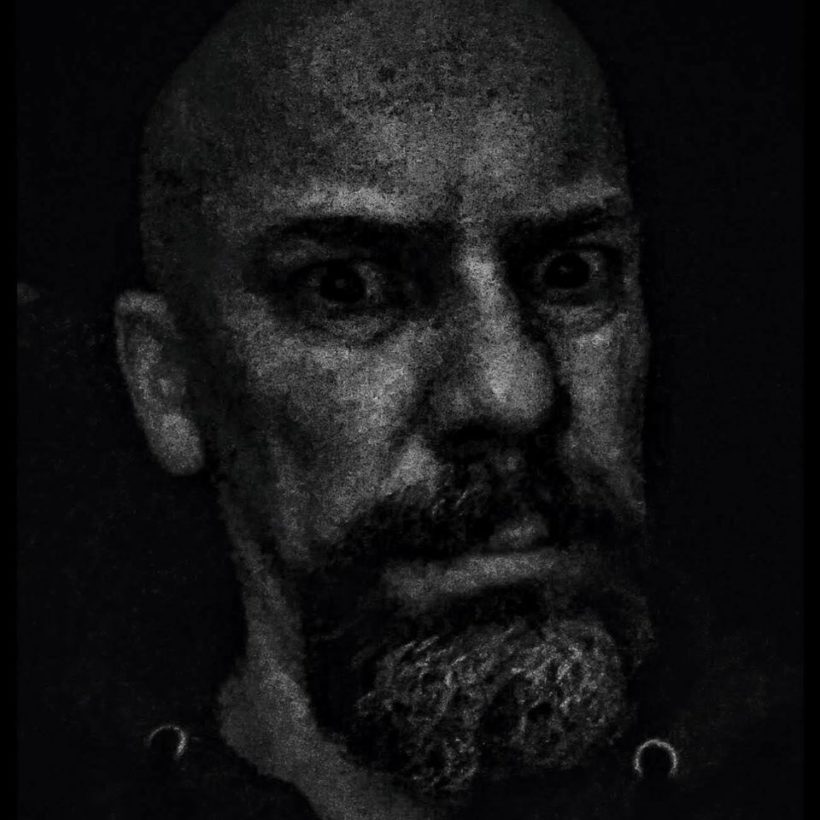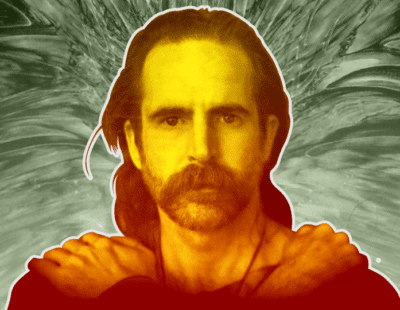
Interpreting Objects Encountered in the Dark; The Daymares Spun by Nuno Lourenço Pt. 1
I’ve recently made the acquaintance of an avid and—by all accounts—very able lucid dreamer, (and no, I’m not referring to the subject of this particular dispatch.) As novel or gimmicky as the exercise may ring, it’s entirely ancient and I’ve long been interested in exploring the discipline. There were, for example, temples in ancient Greece dedicated to the surgeon-demigod Asclepius that in essence functioned as primeval hospitals/medical schools, (Hippocrates was supposedly an alumni.) Most notable among the treatments and amenities offered within the various asclepeions was a discipline called ‘incubatio’ during which the patient would sleep with the intention of receiving a prescription for their ailments from either the temple god himself or from one of his children within the individual dreamscape’s indefinite, water-colored clinics. Likewise, the Syrians and Egyptians famously ground blue lotus flowers into their wine with the aim of stimulating prophetic dream states. Lovely! I’m all in and am entirely intrigued by the lucid dreaming practice and its cornucopia of potential applications. Nevertheless, when my friend and I do slip into a discussion on the topic, I’m quickly lanced by one, very specific dread. ‘Oh, dear god,’ I plead in silence. ‘Let us talk about the process but pretty-please don’t regale me with any of your fucking dreams, I beg you.’ Because no one—no, not even people who are actually paid to evaluate them—want to suffer through that sort of tripe.
It’s a bit funny when you think about it, huh? Listening to your ponderous coworker’s—you know, the guy who always really needs a mint—dissertation about helplessly witnessing the water of their aboveground pool’s transmogrification into j-e-l-l-o while simultaneously penning lyrics to Debussy’s “L’isle joyeuse” should serve as a welcome break from the shit that usually comes out of his mouth but instead it’s just bone-crushingly enervating. Why is that, do you suppose? Perhaps because the articulation of dreams is so uniquely affixed to the peculiar syntax of the individual that they simply have no significance to alien ears. Perhaps because dreams aren’t ordered in coherent arcs and the dreamer rarely thinks—or else has the craft—to satisfactorily edit them in their recounting. I don’t know, chief, but no one should have to wade through anyone’s subliminal records outside of their own. And with no further ado…
MY DREAM ABOUT SALQIU
So, the other night I had this dream: My friend Nuno Lourenço and I have a concept for a band that we find almost too wonderfully slippery to grasp; in fact, we’re nearly hysterical in our enthusiasm. Our idea keeps evolving so quickly that we can barely keep pace with it. “We need a drummer,” we breathlessly decide. “The idea’s almost too willful; it needs structure or else we might lose it.” So, our candidate immediately arrives, emaciated and dispassionate with waist-length, matted hair. Nuno’s taken with him at first blush. By comparison, I’m utterly repulsed. “Tell me everything,” the drummer insists and lies down next to me like the wounded boy curled alongside the titular physician in Kafka’s A Country Doctor. “I must understand your concept.”
“The band’s called Ordre Mortel,” I tell him defiantly, but the drummer shakes his head with unswerving gravity; his eyes are matte and untrue, like faux-stone siding. “No, that name simply won’t do. Another band’s already taken it,” he says. I see Nuno’s silhouette nodding in agreement. “Show it to me,” the drummer demands. And so quite immediately, Nuno and I present our audience with a large box. We unlatch the container’s lid and stare down into an inscrutable skein of channels immutably laced by a brilliant, wandering bulb of light. Down, down goes the light into recesses beyond our powers to observe {dimming, dimming, dimming…} before looping back up towards the threshold of our collective comprehension. It’s a preposterous Rube Goldberg like device; impossible to wholly fathom but fascinating to observe. It’s the process for this music and could be expressed in no other way but this one. Mere language would never suffice. That process is called by a name. It is called ‘Salqiu.’
‘‘‘Come with me into the field of sunflowers’ is a better line than anything you will find here, and the sunflowers themselves far more wonderful than any words about them.” —Mary Oliver
THE GRUMBLING HIVE
Portuguese expatriate Nuno Lourenço’s music can be at times almost cruelly taxing. It can also be righteously exhilarating as the listener’s driven down byways and switchbacks that simply should not exist outside of the imponderable margins of the dreamworld. Salqiu, his primary vehicle of expression, chroma keys bedroom black metal’s bitter impulses to bizarre nomadic horns, (contributed by music professor and experimental/jazz musician Paulo Chagas,) frigid industrial patterns, splashy trad-metal leads, major key volte-faces, baronial midnight sermons and the cacophony of far-flung cityscapes. It’s a maw of unfrequented forest housed within a craw of crumbling smokestacks. It’s a sleepwalked odyssey beyond the walled city’s outposts and on into unfamiliar and maddeningly ungovernable territory. Yes, I could easily go on like this. It’s a wonderful challenge to practically enunciate.
“On my previous albums, [online archivists] Encyclopaedia Metallum actually tagged Salqiu as an experimental industrial band,” sighs Nuno with a rueful smile. “I challenged those guys on that many times but was completely unsuccessful until I released [2018’s] The Blackness Within. I contacted them and said, ‘Okay, here’s the link. Go listen and tell me: am I black metal now?”

Listening to his newly completed masterstroke Invisible Music for the Unseen feels like wading into an academic study on the imps of the subconscious mind authored by one of the metal world’s most swashbuckling yet sentimental scholars. Unusual in every way, Invisible Music… frantically orbits more ideas within the framework of a single track than most artists have the patience, clarity or the wit to demonstrate across the breadth of a career.
“When asked, I tell people that I play ‘experimental, avant-garde, blackened death metal.’ But I mean it as a bit of a joke,” laughs Nuno with maddening nonchalance. “It satisfies people that must have labels. [For my part] I think I play atmospheric black metal with certain allegiances to death metal.”
But like the band name that I proposed within my own dream, such reductive qualifications simply won’t do. Nuno’s compositions represent the very marrow of the classic rhetorical device ‘discordia concors,’ a synthesis of opposites. Writer/lexicographer Samuel Johnson interpreted the concept as “…a combination of dissimilar images, or a discovery of occult resemblances in things apparently unalike.” There’s beauty in ugliness and in fact, beauty would have no perceivable form without displeasure’s surly protocols coaxing it into shape. Such is the weird heart of Nuno’s work. Yet, (predictably,) Nuno swats away the trying sibilance of such analysis.
“Salqiu mainly serves as a therapy, as an escape route from my stressful daily routine. It’s driven by two major factors: the catharsis that the creative process provides me, and my love for music, (especially for metal and progressive rock.) I have so many influences,” he continues. “I try to envision where Salqiu might go and at the moment I think I’d like to go more cosmic, atmospheric black metal. But that may change next week… you’ll never know what’s coming next because I don’t know what’s coming next. I’m completely free to do whatever I want. There are no strings attached to what I do; zero restrictions. Every album’s different from the previous one.”
“I never see what has been done; I only see what remains to be done.” —Buddha
No, we’re not actually concluding this discussion here; we’re merely laying into the ol’ snooze button one more time before committing ourselves to its entirety. The second part of this consideration will focus more directly upon the artist himself and on our conversations as opposed to the maundering patterns that’ve been crayon’d ‘cross my flotation-line of consciousness by his work. For now, I’m content to let this piece’s mulish somnambulism lead us further down into sleep’s ungraspable thrall. No more chattering about our dreams for now, then. Rather, let’s simply bask in their unearthly mantle.
“The unconscious sends all sorts of vapors. odd beings. terrors, and deluding images up into the mind—whether in dream, broad daylight, or insanity; for the human kingdom, beneath the floor of the comparatively neat little dwelling that we call our consciousness, goes down into unsuspected Aladdin caves. There not only jewels but also dangerous jinn abide: the inconvenient or resisted psychological powers that we have not thought or dared integrate into our lives.” —Joseph Campbell





